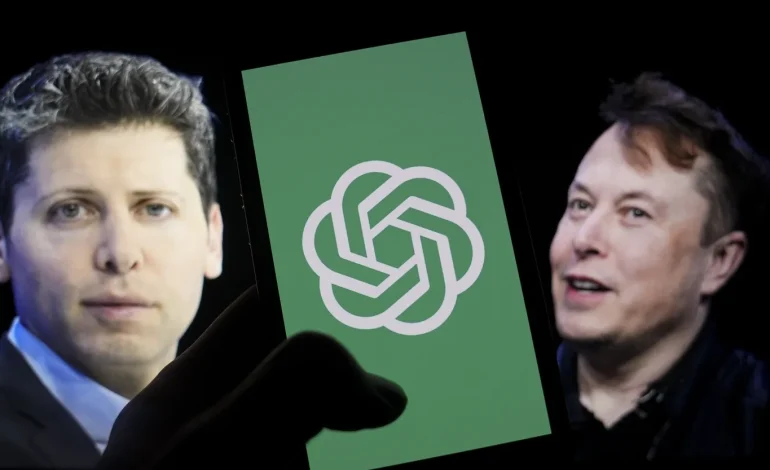OpenAI just dropped GPT-5 — and if there was any doubt about who it’s gunning for, look no further than the feature it couldn’t stop talking about: coding. The new model, now powering everything from the free tier of ChatGPT to Microsoft’s productivity tools, is throwing shade straight at Anthropic’s Claude, widely hailed as the king of code.
After months of delays and a whole lot of online speculation, GPT-5 finally made its debut Thursday. And while it doesn’t deliver a sci-fi leap into artificial general intelligence, it’s definitely shaking up the AI space — especially for developers.
“This is electricity arriving in every home,” said Pietro Schirano, CEO of AI startup MagicPath, in a post on X. “A before and after moment for how we build.”
That’s a bold claim, but one that OpenAI seems eager to back. During its launch event, the company spent the bulk of its time showing off GPT-5’s programming chops, demoing debugging skills, agentic workflows, and even full-on software creation — all done on the fly.
Cursor CEO Michael Truell put it this way:
“It not only catches tricky, deeply-hidden bugs but can also run long, multi-turn background agents to see complex tasks through to the finish. We haven’t seen anything like it.”
GPT-5 doesn’t just write better code. According to OpenAI, it also:
- Hallucinates less (goodbye, confidently wrong answers)
- Handles health tasks more reliably
- Personalizes responses with user-defined “personality modes”
- Is less sycophantic than previous models (read: it won’t just tell you what you want to hear)
This new model is also the first in OpenAI’s lineup to blend traditional large language modeling with reasoning tools that let it “think” longer about complex problems by using more compute time.
CEO Sam Altman is calling this “a defining part of the new GPT-5 era” — one where on-demand software becomes not only possible, but seamless.
Let’s talk strategy.
Until now, Anthropic’s Claude was seen by many in the dev world as the top dog when it came to writing code. It quietly became the go-to assistant for debugging, refactoring, and generating full software builds. Claude helped drive Anthropic’s annual revenue pace to a staggering $5 billion — most of it from coding-focused use cases.
But OpenAI’s not taking that lying down. GPT-5 now enters the ring with a head full of Python and a personality you can tweak to your liking (yes, there’s a “Nerd” mode). The goal? Eat into Claude’s dominance and win back developers.
The math is on OpenAI’s side — the company is running at a $12 billion revenue clip, helped along by Microsoft integrations, ChatGPT’s ubiquity, and enterprise adoption. GPT-5 is only going to add fuel to that fire.
While GPT-5 might be a big deal for coders, it’s also built with everyday users in mind. If you’re a casual ChatGPT user, expect a noticeable boost in performance. Altman even likened switching back to GPT-4 to “going from Retina display to VHS.”
Microsoft clearly agrees. The tech giant is rolling GPT-5 into everything: Microsoft 365 Copilot, GitHub Copilot, Azure AI tools — the works. This tight partnership prompted Elon Musk to snark on X, claiming OpenAI would “eat Microsoft alive.”
Altman’s response? Shrug emoji.
“I don’t think about him that much,” he told CNBC when asked about Musk’s latest jab.
The beef between the two AI titans — Altman and Musk — is as spicy as ever. Musk, who co-founded OpenAI before storming off and launching his own chatbot, Grok, recently claimed Grok 4 was “smarter two weeks ago” than GPT-5. Altman, unfazed, clapped back that Grok’s data is outdated and that Musk’s criticisms are more about ego than substance.
OpenAI isn’t just selling hype. Altman says GPT-5’s real power lies in what it unlocks for businesses and the economy.
“I think a company like OpenAI will be able to build a $100 billion business line, just selling products to other businesses,” he told Fox Business.
He envisions companies using GPT-5 to create personalized AI assistants trained to understand individual workflows, boost productivity, and automate the boring stuff.
In early testing, developers reported becoming 2x to 5x more productive using GPT-5 — a game-changer in industries like finance, software engineering, healthcare, and data entry.
Of course, there’s a flip side. Altman acknowledged that some jobs could vanish in the short term as automation takes over routine tasks. But he believes new jobs will emerge — ones we haven’t even thought of yet.
Despite all the buzz, GPT-5 isn’t the holy grail of artificial general intelligence. It’s not going to cure cancer or stop climate change anytime soon — and critics are eager to point that out.
“It will not harness the incredible power of artificial intelligence as a tool to solve humanity’s most pressing challenges,” warned Max Tegmark of the Future of Life Institute. “Instead, it will pour fuel on the fires: destroying jobs, upending economies, and turbocharging scams and deepfakes.”
Still, for most users, the improvements in GPT-5 are likely to feel massive. It’s rolling out now to ChatGPT Plus, Pro, and Team users worldwide, with enterprise and education versions on the way. And for those who geek out over fine-tuning, OpenAI is letting users shape their own chatbot’s “vibe” — choosing from personalities like “Cynic,” “Listener,” “Robot,” and “Nerd.”
GPT-5 isn’t revolutionary in the flashy, AGI-does-it-all sense. But it is a major step forward — especially if you build software, work with data, or just want your AI assistant to stop making stuff up.
For OpenAI, it’s a strategic play to grab market share from Anthropic and prove it still leads the AI arms race.
For developers, it might be the best coding partner yet.
And for the rest of us?
It’s just the beginning of another big leap forward — one line of code at a time.
Axios, CNBC, the Verge, and FOX Business contributed to this report.










The latest news in your social feeds
Subscribe to our social media platforms to stay tuned